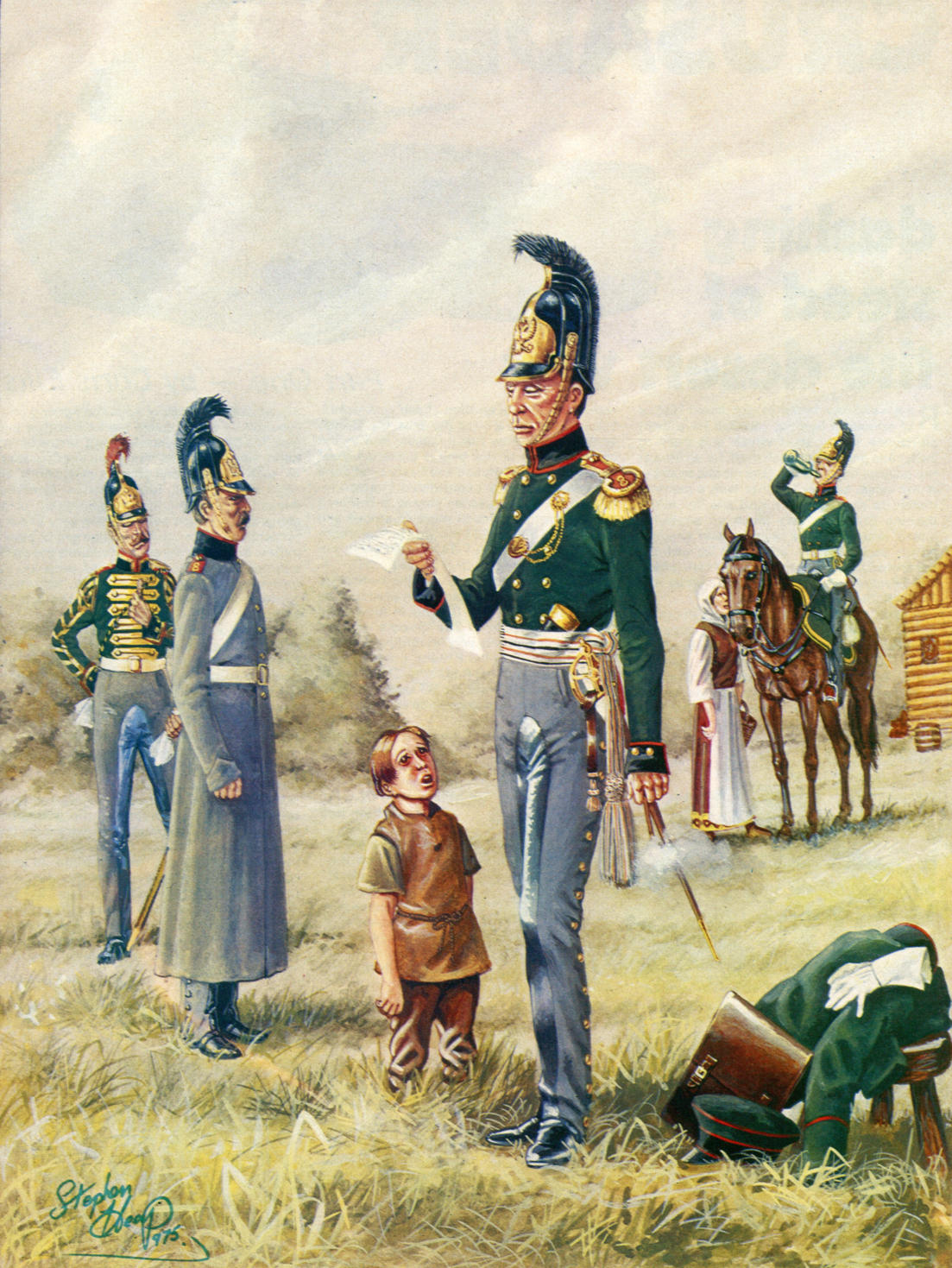
Register a SNAP EBT card with Amazon
NAPOLEONIC ARTILLERY UNIFORMS
Russian Line Horse Artillery - 1812
By Stephen Heap
Military Modelling February 1976.

The Russian Horse Artillery at this period wore a uniform very similar to the dragoons, in fact the helmet was the same pattern as the line cuirassier and dragoon helmet. I can find no information relating to when the helmet was introduced for the horse artillery, but it may have been in 1803, when the dragoons and cuirassiers were issued with this helmet. The field cap, m1811, was dark green with a black band, piped red, the crown of the cap was also piped red. Officers’ field caps were fitted with a black leather peak.
Coatee
The coatee was dark green with a black collar, piped red on the top and the front edge (Knotel shows the officers’ collars with red piping on the bottom edge also as in the colour plate accompanying this article); the cuffs were of Swedish pattern and were also black piped with red, bearing two brass buttons. The coatee was double-breasted with six buttons in each row; the turnbacks were red as were the shoulder straps.
Trumpeters
The trumpeters were dressed as the men but with the addition of black swallows-nests, laced and edged gold, gold lace and chevrons on the sleeves, gold lace on the back seams of the coatee and six loops of gold lace on the front of the coatee. They had gold lace edging the collars and cuffs, a red helmet crest, and trumpet cords were probably yellow and black.
Leg-wear
The full dress leg wear was as for dragoons and cuirassiers e.g. white breaches and black top boots; for other duties and campaign, grey overalls were worn. These were fitted with brass buttons for the officers and cloth covered buttons for N.C.O.s and men; all the overalls had black leather on the inside of the legs.
Sword, saddlecloths other items of dress etc.
In 1806 dragoons were issued with steel scabbards carried on two slings from the waist belt in place of the brown leather scabbards with brass fittings carried in a single broad sling from the waist belt; Knotel, however, illustrates the Horse Artillery in 1812 with the earlier brown leather scabbards in the single broad sling, shown in the colour plate opposite. Officers’ epaulettes were red with the half moon and edging to the strap in gold; lieutenants and captains were without a fringe; Majors’, Lt. Colonels’ and Colonels’ had a thin, loose, gold epaulette fringe. Officers’ sword knots were dark brown (possibly black) leather with the tassel and knot above the tassel in silver, orange and black. Officers could also wear a dark green frockcoat which had a black collar, piped red with red piping round the plain cuffs. There were two rows of six buttons at the front of the coat (see wash drawings for an Officer wearing this garment). For walking out dress, officers wore a bicorne and the infantry officers’ pattern sword, but they did not wear the sash.
I can find no information concerning artillery adjutants but it is possible that they may have been distinguished by gold aiguillettes on the right shoulder; this is only an assumption on my part and I may be wrong — perhaps a reader will be able to help.
The colour plate illustrates, from left to right:— trumpeter, artilleryman in greatcoat, field officer and, in the background, an artilleryman. The wash drawing shows from left to right;— N.C.O. in full dress, officer in walking out dress and officer in frockcoat and field cap.
The saddlecloths were dark green, rounded front and rear in dragoon style and were edged yellow (the inner band broader than the outer); in the rear of the saddlecloths appeared the crowned imperial cipher again in yellow. Officers’ saddlecloths were similar but with all the yellow replaced by gold. Knotel illustrates the Horse Artillerymen with gauntlets, while the officer is shown with white gloves; it is likely, however, that officers would also wear the white gauntlets.
